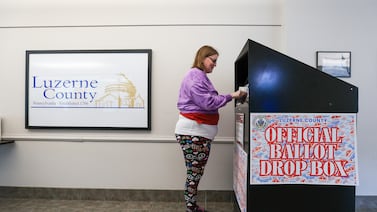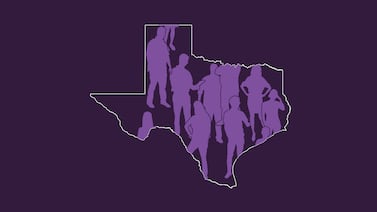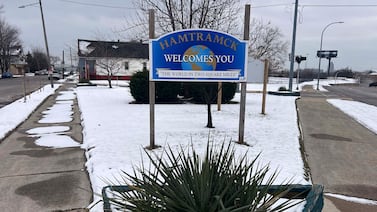Votebeat is a nonprofit news organization reporting on voting access and election administration across the U.S. Sign up for Votebeat Pennsylvania’s free newsletter here.
Despite a few long lines and a smattering of non-credible bomb threats, Election Day in Pennsylvania went relatively smoothly. The state avoided the high profile mishaps in recent election cycles that would have drawn scrutiny to the integral swing state.
“I’m pleased to report that Pennsylvania has once again held a free, fair, safe, and secure Election Day,” said Al Schmidt, Secretary of the Commonwealth. “Today’s success is a testament to the dedication and preparation of our county election officials who I’ve met during my 67 county visits in the past year.”
Bomb threats were reported in several parts of the state — including Chester, York, Philadelphia, and Clearfield counties — as they were in other swing states. Gov. Josh Shapiro said the threats did not represent a “credible” threat to public safety, although some locations did have to be briefly evacuated, and voting hours were extended for some affected locations.
The most common issue voters faced was long lines at several polling places across the state, particularly on college campuses. Some voters at a polling place near Lehigh University in Bethlehem said they waited as long as seven hours to vote, according to The Philadelphia Inquirer.
A judge in Northampton County, where the university is located, denied a request to extend voting hours. Becky Bartlett, a spokesperson for the county, said the county believes turnout may have been two to three times higher than normal for that location.
“Having long lines at precincts with significant numbers of students is not an infrequent occurrence,” Schmidt said. “It’s also not a sign that the county did not appropriately plan for Election Day.”
In Cambria County, a judge extended voting until 10 p.m. after officials there said a problem with how the county’s ballots were printed prevented them from being properly scanned by vote tabulators. The county made new ballots available to resolve the issue, and state officials said the ballots that couldn’t be machine-scanned were being counted by hand.
False information about the state’s elections circulated online throughout the day as expected, though local officials were quick to offer correct information.
Former President Donald Trump claimed fraud was happening in Philadelphia, without providing any evidence or specifying what kind of fraud he meant. Trump has frequently targeted the city with false accusations of fraud. Republican City Commissioner Seth Bluestein quickly pushed back, as did District Attorney Larry Krasner.
A judge of elections in Fayette County told the county election office that he planned to open the ballot box in his precinct after polls closed and conduct a hand-count audit of the results, but a judge issued an order preventing him from doing so.
Schmidt cautioned that the results still may not be known for some time. Late Tuesday, counties were still counting mail ballots that arrived by the 8 p.m. deadline, the exact number of which was unclear as of the time of publication.
Officials in Philadelphia were still counting roughly 202,000 mail ballots. By approximately midnight, the city had counted roughly 165,000 ballots.
Officials in other counties, including Chester and Montgomery, were still counting as well. Allegheny County, home to Pittsburgh, finished counting the majority of its ballots just before 8 p.m.
Carter Walker is a reporter for Votebeat in partnership with Spotlight PA. Contact Carter at cwalker@votebeat.org.




